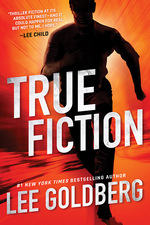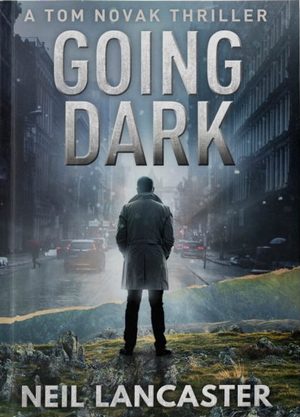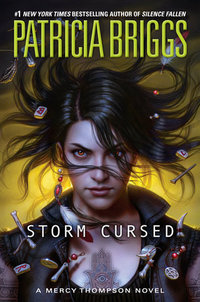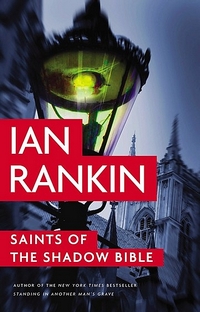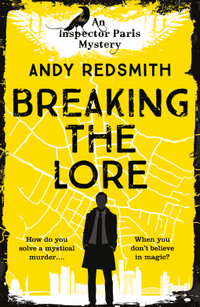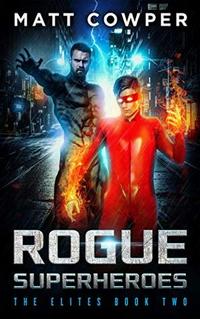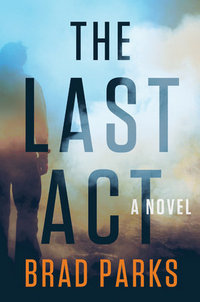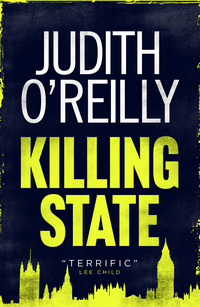I wrote about half of a post about this book to go up yesterday. But I realized I’d spent a lot of time talking about things I really didn’t care about, and hadn’t spent any time talking about the bits I did care about. But I couldn’t turn the ship around (much to my annoyance). So, I let one more day go without a post — a truly annoying trend for the week/month. This isn’t quite what I wanted it to be. But it’s done. So that’s a start.
—
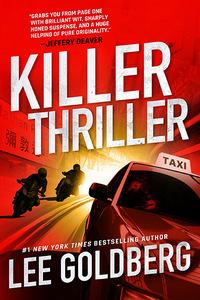 Killer Thriller
Killer Thriller
by Lee Goldberg
Series: Ian Ludlow Thrillers, #2Kindle Edition, 277 pg.
Thomas & Mercer, 2019
Read: May 21 – 22, 2019

| “…I want Ludlow under constant and total visual, audio, digital, and personal surveillance,” Yat added. If anybody in Beijing asked about it, he’d explain that it was part of his ongoing investigation into Wang Kang’s activities, which wasn’t far from the truth. Those were always the most effective lies. “Mobilize every resource that we have.”
“Including the assassins?” “Especially the assassins,” Yat said. |
In True Fiction, Lee Goldberg introduced us to Ian Ludlow — former TV writer, now thriller writer extraordinaire — who discovered (the hard way) that terrorists were using his fiction as a playbook. Then he had to go on the run for his life from these people who didn’t appreciate the fact that he’d be able to identify what they were doing. Running alongside him (frequently behind, more frequently ahead of him) was the poor girl who was supposed to schlep him from bookstore event to bookstore event in Seattle. Margo didn’t like Ludlow, but finding their fates bound together, she threw herself into surviving — and is very likely the reason he did survive.
Not only did they survive, they uncovered and defeated a group within US Intelligence that were actively plotting against the US. It’s a highly improbable story that didn’t feel that improbable — yet was told in a way that played up the tension, the suspense and the fun. It was one of the funniest and most enjoyable books I read last year.
Now it’s time for the inevitable sequel — Killer Thriller — and Lee Goldberg has somehow done what almost every good sequel strives to do (and few succeed) — he tells pretty much the same story with just a couple of differences, yet does so in a way that feels completely fresh and original — in most ways, superior to the original. I don’t think it’d be hard to take a semi-thorough outline of both novels to compare against each other and find that they’re freakishly similar. But I only thought about that when I sat back to think about the book and its predecessor. While reading, I didn’t care about True Fiction or any similarities the current book had to it. I just had too much fun while reading the sequel I couldn’t be bothered to compare it.
Which is a pretty neat trick, really. It’s like when Chandler Bing said, ” Oh–I think this is the episode of “Three’s Company” where there’s some kind of misunderstanding.” Just because every episode of Three’s Company featured a few misunderstandings — it didn’t keep things (usually) from not being funny. The same kind of thing here — just because Ludlow and Margo are once again thrown in to the middle of things they’re not ready for, it doesn’t keep the action scenes from being riveting and the funny bits from being funny.
So, if you haven’t read the first book, let me tell you a little bit about Ian Ludlow. He’s overweight, doesn’t take care of himself in anyway, shape or form. He doesn’t seem to be attractive (and bounces between knowing it and forgetting it). His ego is pretty big, but he’s also realistic about himself. He’s lazy about everything but his writing — and he could likely be more disciplined about it. Okay, based on what we’re told about his greatest creation, Clint Straker — imagine the combination of Bond and Reacher — he’s pretty lazy. Still, he comes up with incredible plots (don’t take my word for it, take the word of people who based terror campaigns on his work). Deep down (Margo would argue very, very deep) he’s a decent guy. Especially for the 15-25 minutes a day he’s not hitting on some unwilling woman, or thinking about hitting on her.
Margo, meanwhile, is a would-be singer/songwriter, a former dog walker, and is really vocationally lost. She’s smart, she’s tough, and adaptable — even if she’s still trying to figure out how to adapt after the events of True Fiction. She’s picked up some self-defense skills along the way, which will prove to be handy.
Ludlow brings Margo with him to Hong Kong to act as his research assistant and hopefully relax a little from the stress that’s eating at her from her recent harrowing experiences (almost being killed counts as harrowing, right?). He’s going to Hong Kong to do a little promotion for the studio that’s turning his first Straker book into a movie. While there, he wants Margo to scope out some places and things he can use in his upcoming novel. In this novel, the Chinese government is waging a secret campaign to take over the US through political manipulation and selling us cheap products they can use to spy on us. Straker’s going to fight against them in Hong Kong, so he needs some local color.
Once in the hotel (and on the hotel’s wi-fi), a group of Chinese espionage agents tap into Ludlow’s laptop and make an unsettling discovery. The plot laid out in Ludlows “novel” is ridiculously close to the plan this same group has spent years devising and implementing to take over the US government through manipulation, cash, and fear. Clearly this man’s novels are just a cover story, he has to be the most wily of secret agents — using this preposterous writer character as a cover for his actual abilities and mission to stop this Chinese plot.
So the Chinese begin their dangerous game of cat and mouse with the “spy” Ian Ludlow. It’s more of a cat-and-clueless-yet-incredibly-lucky-mouse game. But you get the point. But hey, it works. Think Inspector Gadget and Penny — without the robotic arms and sentient dog.
Like Ludlow, Goldberg spent a lot of time as a writer/producer of television. And in both books he does a great job of lampooning the men and women writing, directing and starring in TV and movies. You can’t help but feel Goldberg exorcising some personal demons as he does so — particularly in the table read scene and everything that Damon Matthews (the actor playing Straker) says and does. Incidentally, I’m sure any parallels people might draw between Matthews/Straker and Cruise/Reacher are completely unintentional on Goldberg’s part. For my money, if doing this sort of thing helps Goldberg deal with the frustrations that seem to plague most TV writers/screenwriters, I hope he keeps pouring out his frustrations on the page — I love ’em.
Goldberg seems to have learned a lot from the Fox and O’Hare books he co-wrote with Janet Evanovich — there are huge chunks of this book that feel like they were originally planned for one of them. Whether Goldberg repurposed the scenes or was just influenced by his time with that series really doesn’t matter — the sensibility that made that series work so well is making this one work very well, too.
From the big things — like fight scenes or car chases — to the way he describes a Washington D. C. restaurant, to little touches like the way that someone smuggles information out of China, Goldberg is at the top of his game — which is an accomplishment. I think I’ve read almost 30 of his books and there are maybe one or two that are more satisfying than Killer Thriller. Thrills and laughs together — and maybe maybe a little surprising character depth and development (just a bit, we don’t want Ludlow to stop being a cad and a loser), this is a whole lotta fun. You can come into this one fresh, you won’t appreciate the changes in character (particularly Margo), but you’ll have just about as much fun as the rest of us.
—–

![]()




